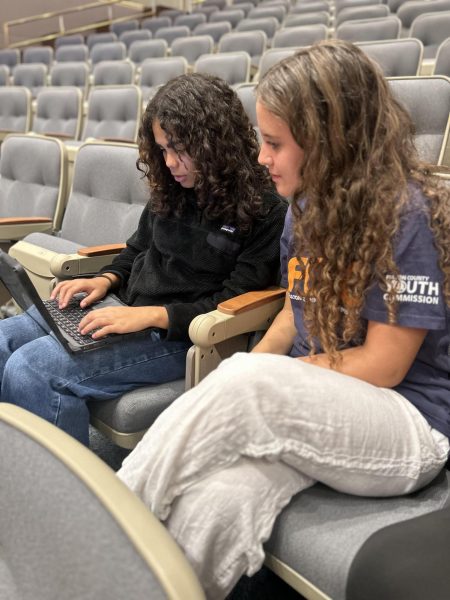Modern curriculum needs home economics
The outdated stereotype surrounding home economics takes a toll on the classes real goal.
For years, students have said school is not preparing them for life in the real world. And they are right. While offering college-level calculus and physics classes, most schools, including Grady, don’t have a class for basic life skills.
Home Economics’ importance in preparing students for life outside their parents’ care and supervision is vital. A Home Ec. class would help ready high schoolers for adulthood by building crucial life skills such as managing checking accounts, cooking, basic finance and sewing. Home economics not only builds important life skills but it also builds responsibility and independence.
The American Home Economics Association, now the American Association of Family and Consumer Sciences, was founded by Ellen Swallow Richards in 1908. Home Ec. classes in the 1900’s were mostly catered to and attended by young girls, giving the class a precarious reputation and leading people to believe the class was training housewives to serve their husbands. Even today, many still hold that false preconceived notion.
In fact, Richard’s mission was to help liberate women from being tied to their houses by teaching both genders everyday skills and subsequently making home life more efficient.
Though Home Ec. classes were never meant to be for just young girls, that’s often what happened. The preexisting idea that women belonged in the home contributed to boys’ lack of taking the class as it was considered an elective. This de facto segregation by gender perpetrated the traditional stereotype Home Ec. classes had meant to dispel. If boys and girls were both required to take Home Ec., the stereotype would dissipate, along with the prejudice toward the class.
So, why are the classes so scarce today? When it became socially acceptable for women to join the workforce and make a living for themselves, teaching girls to be “housewives” became less desirable. That’s when the class was labeled sexist and outdated. But the skills being taught in the class aren’t outdated.
According to a survey from Porch, a home improvement site, only 24 percent of baby boomers consider themselves bad cooks. But, this statistic has risen through generations with 39.8 percent of millennials considering themselves bad cooks. Cooking is an essential skill that has numerous health and financial benefits and should be taught in school to be learned in a safe way. The pandemic has shown the importance of being self-sufficient, and making the next generation of adults more self-sufficient can start with providing this generation’s students with a Home Ec. class.
The revival of Home Ec. in the modern era would be beneficial to young generations due to the skills the class teaches.Today, both parents in a household often hold a job. For a household to run smoothly, skills taught in Home Economics would be useful to the whole family. That way, everyone can pitch in on the cooking, cleaning and even gardening, while simultaneously making strides toward gender equality at home, just as Richards imagined.
While skills such as balancing a checkbook or cooking a meal are not taught at Grady, these are also skills that cannot be avoided once students graduate. When students go into the real world, they will need to know how to live a smart and successful life. A modernized curriculum for home ec. would prepare them for just that.

Katie Sigal is a senior and Comment Managing Editor and Social Media Editor for the Southerner. She is on the swim team and, in her free time, she likes...

Sophia is a senior and a Layout Design/Graphics, Photography, and Social Media Editor on the Southerner. Outside of writing, she spends her time taking...












Malaya Tapp • Mar 11, 2021 at 10:23 pm
I agree, I always wished Grady offered home Ec classes. My old school did, but it was only for high school and I moved in middle school so I never got to take it. All my friends that did though, say it was helpful and a class they actually looked forward to. I think it would highly benefit many people at Grady and their families.